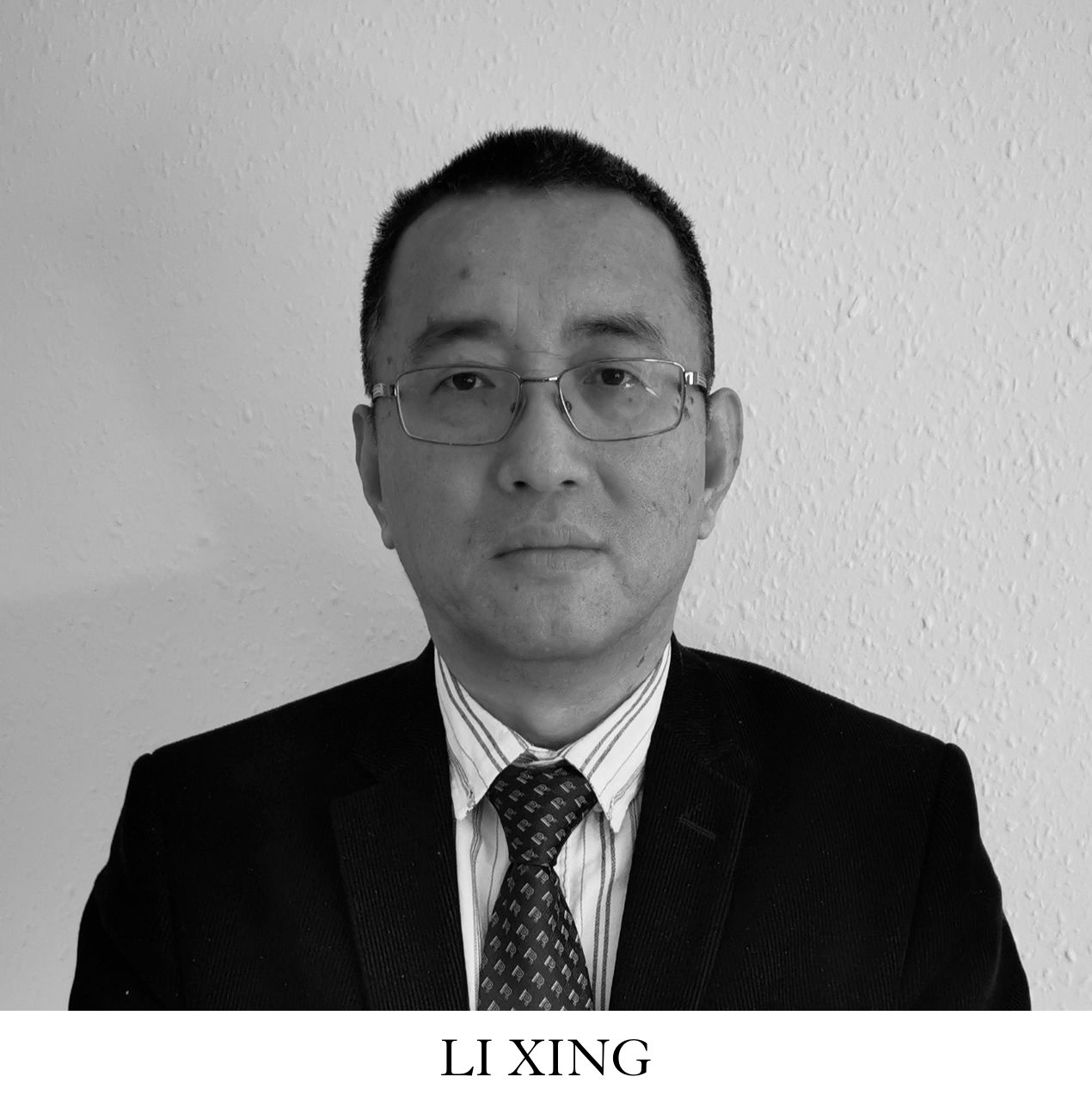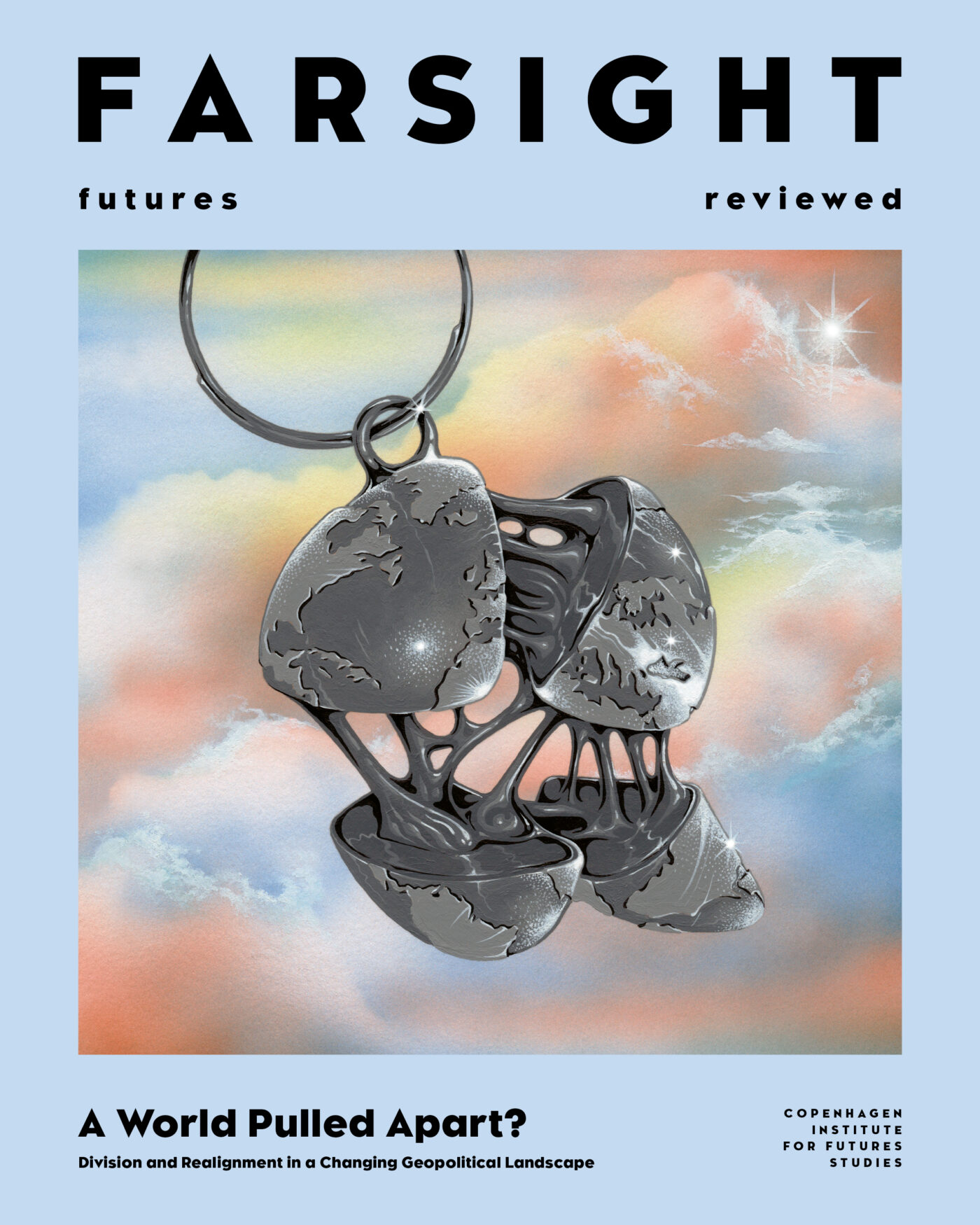
In turn, we use cookies to measure and obtain statistical data about the navigation of the users. You can configure and accept the use of the cookies, and modify your consent options, at any time.

China and the West
A future of co-existence or confrontation?
An interview with Li Xing, Professor of International Relations at Aalborg University
Illustration: Sophia Prieto

Li Xing is a Professor of Development and International Relations at Aalborg University, Denmark, as well as an Honorary Professor at several universities in China. Alongside his academic work on international political economy, emerging powers, and world order, he has written for the Danish newspapers Weekendavisen and Politiken, as well as international media such as the South China Morning Post.
Having grown up in the 1960s during China’s Cultural Revolution and then moving to Denmark in 1988, Professor Li has witnessed China’s shift from a closed society during Maoist socialism to the immense growth experienced under the state capitalism of Deng Xiaoping. In this interview, he shares his thoughts on the emerging world order, China’s place in it, and whether the most likely outcome will be conflict or co-existence with the West.
There seems to be a degree of mistrust between China and the West. Do you think reaching a mutual understanding is possible, or is it a futile endeavour?
For context, let’s go back to the fall of the Soviet Union in 1991. As the political theorist Francis Fukuyama famously proclaimed, this event seemingly marked the End of History – the Western liberal-capitalist belief system was to become universal. This was supposed to be a confirmation of the Western idea that economic modernisation is followed by political democratisation; the growth of the middle-class creates political competition, resulting in political pluralism. Instead, China experienced the exact opposite effect: as economic modernisation took place, it did not seem to translate into a politically pluralist society. This development alone has been enough to cause significant anxiety in the West: the promise of a universal liberal-capitalist order was suddenly not supported by the most populous country in the world. As a means of coping with this sudden rupture of expectation, many Western observers have capitulated to a pre-determined understanding of communism as consisting of the Soviet Union and nothing else. This is a great mistake and a clear cause of misinterpretation of the Chinese system.
What, in your view, is at the root of this misinterpretation?
One factor is the misguided idea that an authoritarian state creates instability, a lack of human innovation and the creativity that a democratic society brings. On the contrary, the World Bank, the IMF, and even the United Nations all agree that China has one of the most vibrant, innovative economies in the world. Then there is the false assumption that an authoritarian state must be unpopular – and that it is therefore just a matter of time before it buckles under popular pressure. Two years ago, Harvard University’s Ash Centre, a democracy research institution, published reports based on thirteen years of opinion polls in China, measured on social, political, and economic scales. The report concluded that Chinese citizens’ satisfaction with the government has in fact increased steadily since 2003. Recent years’ data from some Western public opinion survey institutions, such as Ipsos and Edelman Trust Barometer, show that China has been among the top-ranking countries both in terms of people’s satisfaction with the government and their confidence for their country’s future.

Broaden your horizons with a Futures Membership. Stay updated on key trends and developments through receiving quarterly issues of FARSIGHT, live Futures Seminars with futurists, training, and discounts on our courses.
BECOME A FUTURES MEMBERI believe the misunderstandings boil down to differences in how political legitimacy is maintained in the West and China. In Western democracies, a political leader’s closeness to the people is determined by them being elected – that’s how they gain their legitimacy. The Chinese elite do not acquire legitimacy through election. Instead, their legitimacy must be based upon results and meritocracy. China is an authoritarian state – it is not democratic. But it is also a meritocratic state, meaning that the elites that govern the country are chosen based on their individual merit.
What sets Chinese and Western approaches to foreign policy apart? Do you believe a growing economic interdependency might bring China and the West closer together?
A key characteristic of Chinese foreign policy is predictability. The West needs to ask itself why the countries it has exported democracy to in the developing world do not attract the level of economic investment that China does. This is not because of China’s authoritarianism per se, but the predictability that the Chinese system brings about. Global stakeholders know that Xi Jinping will rule for another term or longer; Western countries cannot replicate this predictability, despite being the supposed anchors of the capitalist world economy.
With China increasingly occupying supply chains in the global economy to such an extent that the West is becoming dependent on China, it is my belief that the West will eventually begin to ‘understand’ and ‘accommodate’ China, looking towards and drawing inspiration from Chinese values, ideals, and culture.
What do you think of the comparison between the Belt & Road Initiative (BRI) and the Marshall Plan, which saw the emergence of American soft power in the countries that were aided economically after the Second World War?
I agree that without its economic foundations, the cultural power of the US in Europe would not have been what it is today. Eventually, political, economic, and military power produces a spill over effect in culture. That, I think, will also be one of the outcomes of China’s growing strength.
That said, I think that China is still in a relatively weak position in terms of soft power exertion, partially in connection with the misunderstanding of China in the West. On the other hand, China is gaining momentum in places like Latin America, East and Southeast Asia, and Africa. With investments in local infrastructure comes a general warm-up among the populations towards China and, eventually, Chinese culture. These are countries that used to be seen as the West’s backyard, which is why some Western observers and politicians are provoked by China’s successes.
For something like the BRI, I don’t see a direct comparative connection to America’s Marshall Plan, but there are certainly some points of similarity.
Geopolitically, the BRI is highly strategic. If China were to go to war with the US in the South China Sea or the Taiwan Strait, all commercial shipping lanes could potentially be blocked along that route. China is the largest exporter nation in the world, and if commercial transportation were to be blocked, China’s power status would be severely weakened. Thus, China has had to find an alternative trade route to prevent this from happening. That’s why commercial shipping ports owned by China have been built in Burma and in Pakistan – China has had to look westwards. If something were to happen in the South China Sea, the lifeline of China would still be intact, as oil from the Middle East would continue to be transported to China via Pakistan or Burma, and thereafter via container trains to Xinjiang.
Do you see there being a direct military conflict between the US and China within, say, the next thirty years?
Let me put it this way: since the invention of nuclear weapons, there has never been a war between two nuclear powers due to the prospect of mutual destruction. Instead, nuclear powers tend to engage in the form of proxy wars. You can view Ukraine as a proxy war between NATO and Russia. Similarly, American cooperation and support for Taiwan is raising the potential for Taiwan to be a theatre for a proxy war in the future.
In such a scenario, I don’t think the US would want to fight China directly, but instead aid Taiwan by providing them with weapons, similar to what is happening in Ukraine. Furthermore, if nuclear weapons are off the table, then fighting against China in East Asia is completely disadvantageous for the US. A combination of both powers having nuclear weapons, as well as China’s comparative advantage in East Asia and the South China Sea, makes direct conflict unlikely, in my opinion.
Do you think that the perceived hegemony of the US over the Pacific lowers the threshold needed for a war (either proxy or direct conflict)?
No. At the moment there are two opposing views in American politics when it comes to Taiwan and the prospects for conflict between the US and China in East Asia. One view is in favour of abandoning Taiwan because it is not believed that the pros of continued support outweigh the cons. While Taiwan may be an asset in some terms – economic and technological ones – it is a significant burden as well, and those who hold this view believe that it is simply not possible for the US to win a war against China in East Asia taking into consideration China’s military capacity.
The second view, however, is that if the US were to give up Taiwan, then its reputation would be badly damaged. Finding the balance between these two views has been – and still is – a challenge for the executive branch. Overall, I think that the US would give serious second thought to provoking China as it has done with Russia in Ukraine. American history is scattered with war after war, where the only real winner is the military-industrial-complex – not the American people themselves.
How do you see China’s role in the emerging world order?
Since the Second World War, the international order has undergone several transformations. During the cold war, the bipolarity of world order dominated; after the fall of the Soviet Union, it was unipolarity. And for the past, say, fifteen years, as Russia, China, Brazil, India, and other developing countries have risen, the world has been steadily entering a new stage of multipolarity.
Let’s imagine that, when the Russia-Ukraine war ends, it ends with a negotiation where Russia firmly controls a certain area that results in NATO being pushed back. Russia now has its sphere of influence, as does China. The three spheres of order – the Russian, Chinese, and Western – will be grouped along lines of common identity, common history, cultural history, and similar geopolitical and economic interests. The interesting aspect to this theory is the role of developing countries in Africa, Latin and South America: I believe that they will create a balance between the other three orders.
This is due to the capitalist world economy in the multipolar world order. The challenge to the West is that global capitalism has developed into a largely independent structure. Whereas capitalism was born in 15th century Europe, and expanded first through colonialism and imperialism, then globalisation, capital has now become increasingly omnipotent, outside the agential control of certain powers.
The US may attempt to exert agency over capital by making rules and regulations constraining the Chinese economy, but this only serves to create chaos and the disruption of supply chains. For example, the US is currently attempting to force the Netherlands not to sell laser engraving machines to China for microchip production. China is the world’s largest market for microchips, and a company like Samsung has 42% of its business located in China. Attempting to exert agency over the independent structure of capital in the way the US is doing will have the inadvertent effect of pushing China towards building its own autonomous industries.
In this sense, it is likely that the geopolitical disruption of global supply chains will simply make China more resilient in the long term. Similarly, sanctions against Russia amidst the ongoing conflict with Ukraine will indirectly benefit Chinese global finance by strengthening the Chinese Yuan.
The collective consciousness of China sees the world through a dialectical Yin- Yang lens; everything has its own counterpart, including crisis. Translated as “Weiji”, the notion of ‘crisis’ is a combination of danger (wei) and opportunity (ji): once a danger has been resolved, one’s field of opportunity grows. For China, crisis is never, in itself, something to necessarily avoid.

This is a featured article from our latest issue of FARSIGHT: A World Pulled Apart?